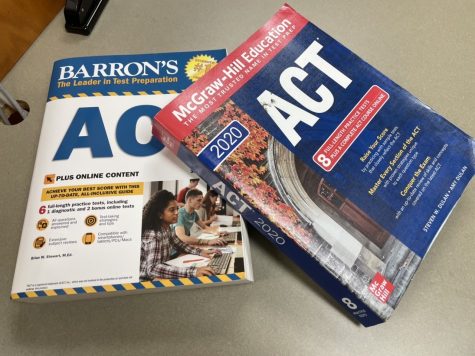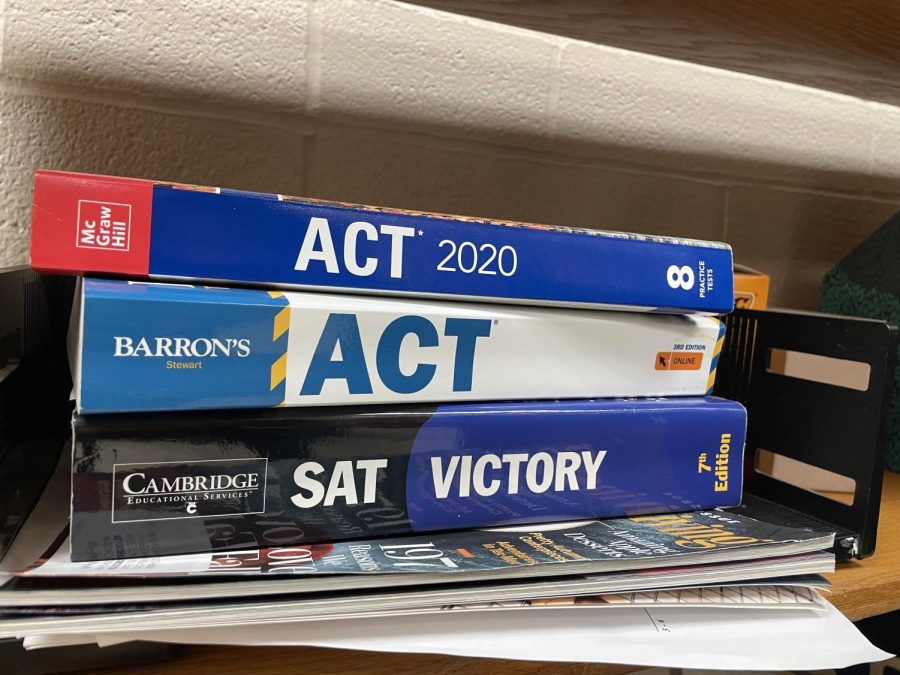Standardized testing: Assessment or ache
Part of the library’s expansive ACT/SAT book collection that can help test takers study before their test.

Every year, millions of students across the country participate in standardized testing. Whether the variance is in socioeconomic class, ethnicity, or nationality, these eager test-takers compose a very diverse group of people. Nevertheless, all are humbled before the mighty ACT. For such students, Oct. 4 was the day of reckoning, the day when they took a test that could change their lives.
Since the late 1950s, the U.S. has used the ACT as a college entrance exam. Although colleges have used it as a measure of college readiness and intellect, that meaning has been gradually decaying as the ACT and standardized testing have become more criticized.
“A person is so much more than one test,” Ivan Dam (9) said.
Nevertheless, the ACT still holds a critical place in the academic landscape because of its prestige and frequent college usage as a factor that goes into applications and partly determines whether one is accepted.
“[Even though] I [criticize] the ACT, I do believe that people who have a 34 or above will do extremely well in college, because they have a work ethic to study for it” David Anderson (12) said. “… In college they will likely be successful.”
Beyond a general test of “intellect,” the ACT is more an assessment of time management and test preparation skills. Despite having the expertise to do well, many students who take the ACT don’t do as well as they could because they run out of time.
“In most sections I could answer everything accurately if I had more time; however, you have to go at an extremely fast pace,” Anderson said.
Beyond time management skills, the ACT is a very “objective” test; it focuses on right and wrong reading interpretations, correct math problems, and reading graphs correctly. This test style may not be the best assessment for people with learning styles that focus more on strengths such as creativity and hands-on activities.
“[Some who come to tutoring] might just have certain skills they are lacking … or certain patterns they can’t pick up on,” Anderson said.
The ACT is expensive. If students want to retake the ACT to get a better score outside of school, they must pay at least $60. For students who wish to take the ACT multiple times to get a score they want or need, costs pile up as they take the ACT over and over. These high costs to take the ACT can harshly impact financially challenged students.
“Not being able to take it multiple times is a huge disadvantage,” Ray Wu (12) said.
Even though the ACT may stress students out if they think they must get a specific score, the ACT in no way is a validation of a student’s worth in society. It doesn’t matter if students make a 19 or a 36; they can still impact the world.
“Some people can get [a low score] but be really creative and still contribute a lot to society,” Dam said.
Your donation will support the student journalists of White Station High School. Your contribution will allow us to purchase equipment and cover our annual website hosting costs.









































